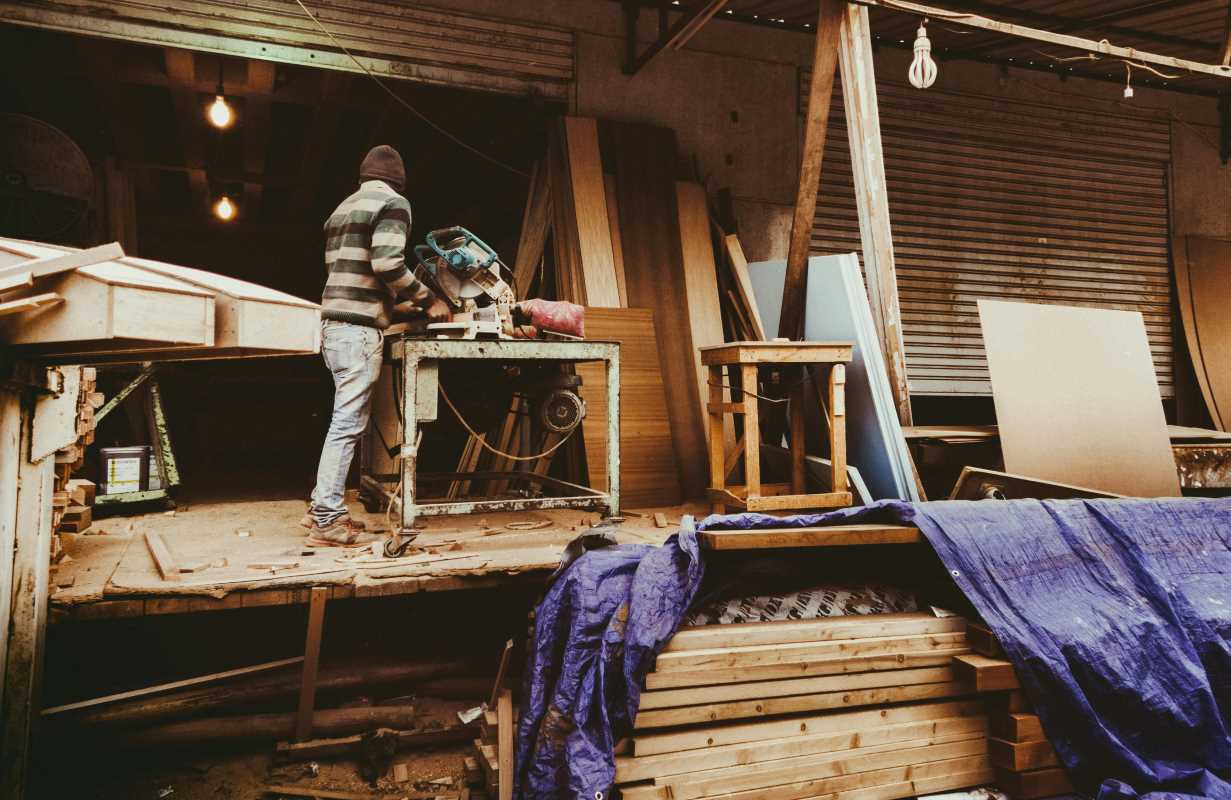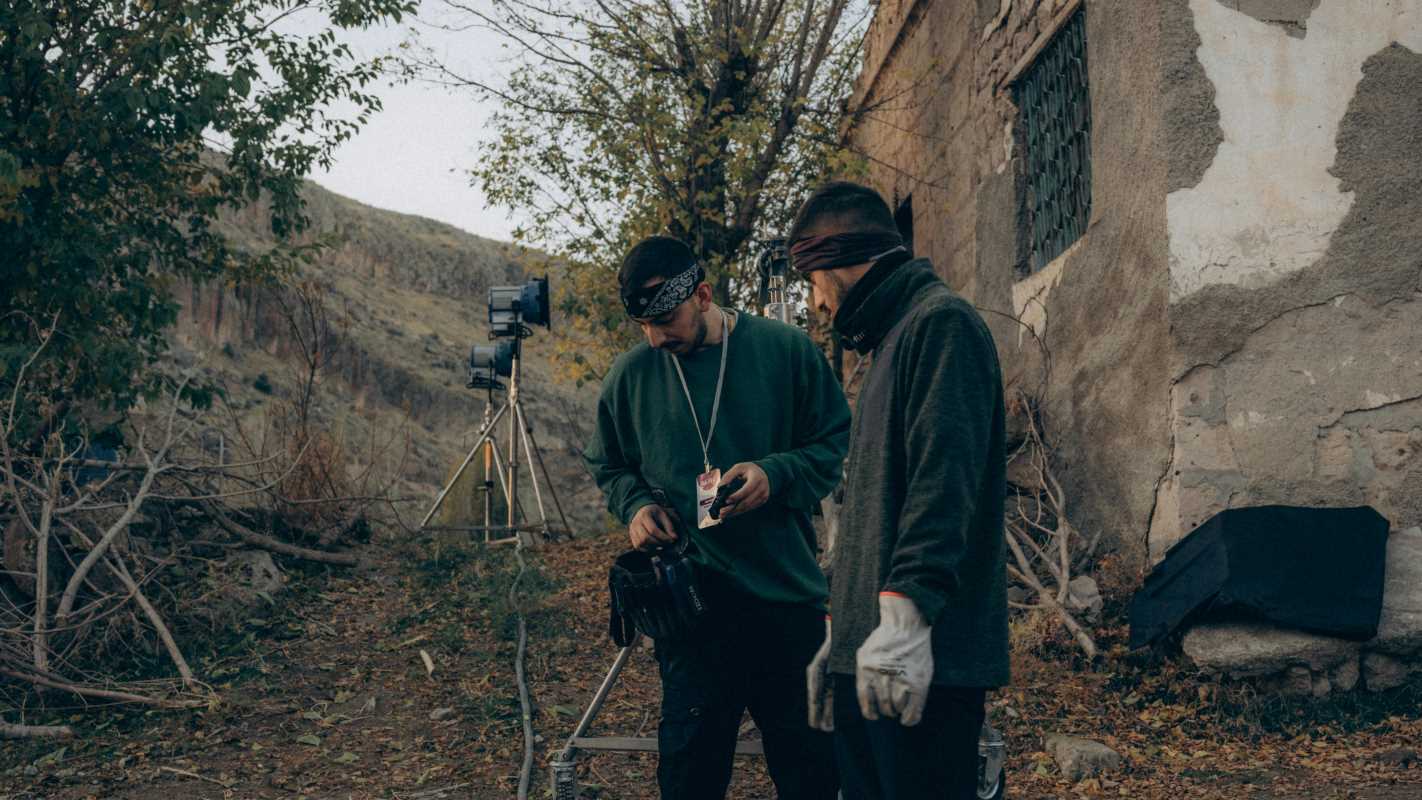Ever watch a play and wonder who built the incredible world on stage? That’s the work of a scenic construction crew. These are the skilled pros who turn a designer's blueprint into a physical reality. It’s a hands-on career that blends creativity with serious building skills. For anyone who loves making things, this is your ticket into the theater world.
Breaking into this field is all about skill and hustle. Here’s your guide to getting started.
What Does a Scenic Carpenter Do?
A scenic carpenter, or theater technician, is the builder of the theater world. They work in a scene shop to construct, install, and maintain all the scenic elements for a play. This isn't your average construction gig. One day you might be building the walls of a castle, and the next you could be crafting a fantastical, rotating forest.
The job demands a wide range of skills. You’ll work with wood, metal, plastics, and fabrics. You’ll use power tools, read technical drawings, and work as part of a team to meet tight deadlines. It’s a physical, fast-paced job that is incredibly rewarding.
Level Up Your Building Skills
You don’t need a fancy degree, but you do need solid skills. Your ability to build is what gets you hired.
- Master the Basics: Get comfortable with standard construction techniques. Learn how to use power tools like table saws, routers, and drills safely and effectively.
- Woodworking is Key: Most scenery starts with a wood frame. Master basic carpentry, from building flats (the walls of a set) to platforms.
- Get Good with Metal: Many modern sets use steel frames for strength and durability. Learning to weld is a huge plus and will make you a much more valuable hire.
- Read the Plans: You need to be able to look at a designer’s technical drawings (blueprints) and understand exactly how to build the piece.
You can learn these skills at a vocational school, a community college program in technical theater, or by just getting your hands dirty in a workshop.
Safety First, Always
Scene shops can be dangerous places. A deep respect for safety is non-negotiable. Employers need to know you can work safely and professionally.
Get your OSHA 10-hour or 30-hour certification for general industry. This training teaches you to recognize and prevent job site hazards. It shows you’re serious about safety and is often a requirement for professional shops. Always know how to use personal protective equipment (PPE) like safety glasses and steel-toed boots.
Build a Portfolio That Shows Your Work
Your portfolio is your visual resume. It’s a collection of photos that proves what you can build. It doesn't have to be fancy, but it needs to be clear.
- Document Everything: Take pictures of projects you work on. Get shots of the finished product on stage, but also include process photos. Show the piece being built.
- Show Variety: Include projects that showcase different skills. Have examples of your carpentry, metalwork, and any specialty projects you’ve done.
- Keep it Digital: Create a simple website or an online photo album. This makes it easy to share your work with potential employers.
Your portfolio is your proof. It shows you have the experience to get the job done.
How to Get Your Foot in the Door
Experience is everything. You need to start building your resume and your network.
- Community Theater: This is a great place to start. Volunteer at your local theater’s scene shop. You’ll get tons of hands-on experience and learn from more experienced builders.
- Internships and Apprenticeships: Professional theaters often offer internships or apprenticeships. These are structured programs where you get paid to learn on the job. This is one of the best ways to go from amateur to pro.
- University Scene Shops: If you’re in school, get a job in your university’s scene shop. It’s a perfect way to build skills while you study.
- Networking: The theater world is small. Get to know the technical directors and shop foremen in your area. Go to industry events and connect with people. Your reputation for being a hard worker will get you your next gig.
Teamwork Makes the Dream Work
Scenic construction is a team sport. You’ll be working closely with a crew to build massive projects on a tight schedule. You need to be a great collaborator.
Listen to your shop foreman and communicate clearly with your teammates. Be ready to jump in and help wherever you’re needed. A positive, can-do attitude goes a long way. You’ll also work with designers and directors, so being a good team player is essential for everyone's success.
A career in scenic construction is your chance to be a part of the magic of theater. It’s hard work, but seeing something you built come to life under the stage lights is an unbeatable feeling. So get your tools, build your skills, and start making connections. The stage is waiting for you.
 (Image via
(Image via





